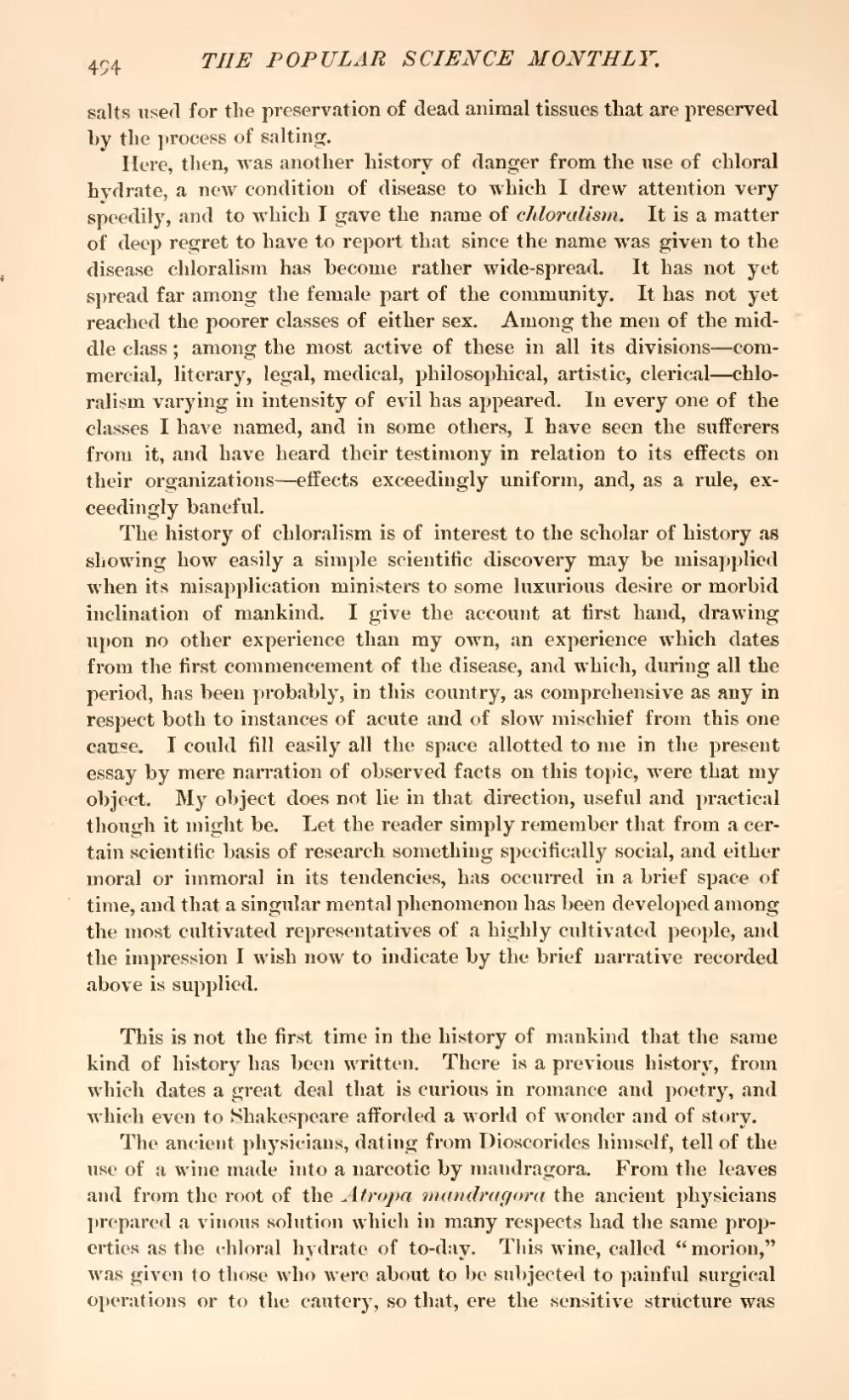salts used for the preservation of dead animal tissues that are preserved by the process of salting.
Here, then, was another history of danger from the use of chloral hydrate, a new condition of disease to which I drew attention very speedily, and to which I gave the name of chloralism. It is a matter of deep regret to have to report that since the name was given to the disease chloralism has become rather wide-spread. It has not yet spread far among the female part of the community. It has not yet reached the poorer classes of either sex. Among the men of the middle class; among the most active of these in all its divisions—commercial, literary, legal, medical, philosophical, artistic, clerical—chloralism varying in intensity of evil has appeared. In every one of the classes I have named, and in some others, I have seen the sufferers from it, and have heard their testimony in relation to its effects on their organizations—effects exceedingly uniform, and, as a rule, exceedingly baneful.
The history of chloralism is of interest to the scholar of history as showing how easily a simple scientific discovery may be misapplied when its misapplication ministers to some luxurious desire or morbid inclination of mankind. I give the account at first hand, drawing upon no other experience than my own, an experience which dates from the first commencement of the disease, and which, during all the period, has been probably, in this country, as comprehensive as any in respect both to instances of acute and of slow mischief from this one cause. I could fill easily all the space allotted to me in the present essay by mere narration of observed facts on this topic, were that my object. My object does not lie in that direction, useful and practical though it might be. Let the reader simply remember that from a certain scientific basis of research something specifically social, and either moral or immoral in its tendencies, has occurred in a brief space of time, and that a singular mental phenomenon has been developed among the most cultivated representatives of a highly cultivated people, and the impression I wish now to indicate by the brief narrative recorded above is supplied.
This is not the first time in the history of mankind that the same kind of history has been written. There is a previous history, from which dates a great deal that is curious in romance and poetry, and which even to Shakespeare afforded a world of wonder and of story.
The ancient physicians, dating from Dioscorides himself, tell of the use of a wine made into a narcotic by mandragora. From the leaves and from the root of the Atropa mandragora the ancient physicians prepared a vinous solution which in many respects had the same properties as the chloral hydrate of to-day. This wine, called "morion," was given to those who were about to be subjected to painful surgical operations or to the cautery, so that, ere the sensitive structure was

